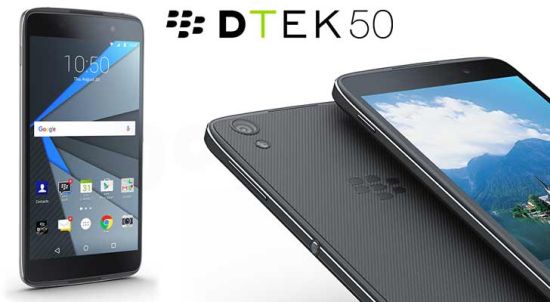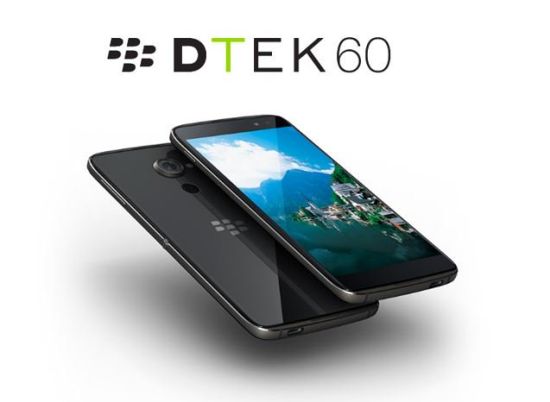BlackBerry Partners with Optiemus & Launches DTEK50, DTEK60
-

BlackBerry, the Canadian smartphone developer, has launched two new Android-powered handsets DTEK 50 and DTEK 60 in India. The company also partnered with Optiemus Infracom to strengthen their market in India. Similarly, it has entered into a joint venture with Vistron for manufacturing and is also the distributor for Samsung and Plantronics.
Utilizing the Android 6.0 Marshmallow out-of-the-box, BlackBerry announced the launch of DTEK50 and DTEK60 at ₹21,990 and ₹46,990 in India. To be precise, these are the re-branded version of Alcatel Idol 4 and Alcatel Idol 4S manufactured by TCL Corporation.
BlackBerry DTEK50 Specifications:
The company’s thinnest phone ever at 7.4mm sports a 5.2-inch full HD display with an oil-resistant coating. The DTEK50 runs on Qualcomm Snapdragon 617 processor coupled with 3GB RAM and 16GB internal storage space expandable up to 2TB via microSD card.
Camera wise, BlackBerry DTEK50 features a 13-megapixel rear camera and 8-megapixel front camera with flash. Backed by 2610mAh non-removable battery with Quick Charge 2.0 technology, the company claims to offer 17 hours talk time, 12.8 days standby time, 40 hours audio playback and 8 hours video playback. The smartphone offers intelligent keyboard as a default on this phone and equipped with all connectivity options including the support for Indian LTE bands.
BlackBerry DTEK60 Specifications:
This single-SIM BlackBerry DTEK60 sports a 5.5-inch QHD display (1440X2560 pixels) at 534ppi pixel density screen and is powered by Qualcomm Snapdragon 820 SoC with 4GB RAM and 32GB inbuilt storage expandable up to 2TB via microSD card. On the camera front, the DTEK60 supports a 21-megapixel rear camera with dual-tone LED flash and 8-megapixel front camera. The smartphone runs on a 3000mAh non-removable battery with Quick Charge 3.0 to deliver 26 hours of talk time.
Will BlackBerry Bounce Back?
BlackBerry’s phones are known for secured handsets and this DTEK is no exception. The DTEK phones are equipped with built-in security app to make the smartphone more secure and cryptographic.
Formerly known as Research In Motion Limited (RIM), Blackberry was the leading smartphone in many markets, particularly the United States for a number of years. The arrival of Apple iPhone and later Google’s Android platform led to the criticism that BlackBerry’s hardware and operating system were outdated and led to the mass defections in tech history.
